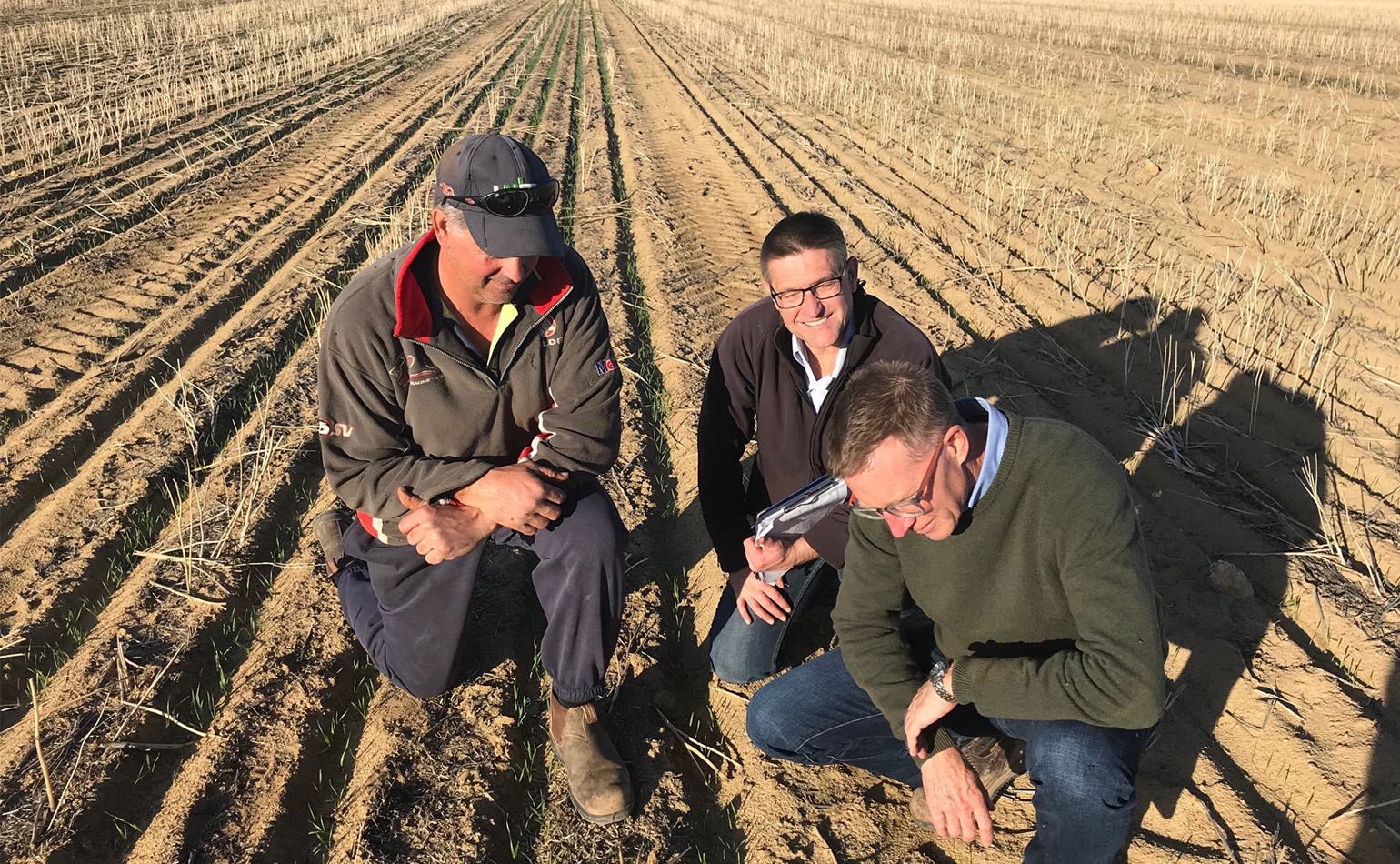Dr David Minkey is an agricultural scientist from the city.
“I love the country lifestyle, but I don’t think the farming lifestyle is for me,” David explains.
Growing up in Perth, his exposure to rural life was limited to visiting a friend’s farm, but as an adult he has found himself immersed in agriculture and food production.
“I wasn’t sure what I wanted to do, but ag science seemed to have everything I was interested in, so I enrolled in a Bachelor of Agricultural Science at the University of Western Australia (UWA).”
After completing his undergraduate degree, he worked as a technical officer in the Department of Agriculture. He began assisting research officers in plant pathology, later moving into weed science, working in Albany in South West Western Australia. He then had a stint working in the WA Wheatbelt town of Merredin before embarking on his PhD back in Perth at UWA in weed science, focusing his study on decay of weed seeds by insects, more specifically, ants that eat weed seeds.
Eleven years ago, David took up the position of Executive Director at Western Australia No-Tillage Farmers Association (WANTFA). In this role he oversees all operations and manages the association from corporate governance to projects.
“I came to WANTFA at a time when they were shifting their focus from adoption to research. The role was appealing because you can make a difference in the whole system, it is focusing on soil health and sustainability. It’s been a steep learning curve – I’ve learned a lot from the farmers, a lot about staff management and also about grant funding.”
WANTFA is a conservation farming group formed in 1992 when many farms in Western Australia were struggling with wind erosion. No-till farming was seen as a solution.
“At the time, no-till wasn’t new but it certainly wasn’t widespread. We went from 3% adoption of no-till methods in 1992 to 97% adoption currently.”
David explains that no-till offered reduced erosion and lower costs and the introduction of more herbicide options enabled no-till to succeed.
He involvement with the Soil CRC began with the first bid. Having previously worked with the Weed CRC he already knew the value of a CRC.
“The networks from a CRC are amazing, it was a big drawcard. Being able to pick up the phone and speak to people all over Australia is fantastic,” he explains.
But it wasn’t just the CRC network, David understood that soils are a key problem for growers in the west, so he really wanted to be involved with the Soil CRC.
“WA soils are so eroded and ancient and not overly well structured. Improving soils here is such a game changer. Sustainable farming systems can be so challenging here in WA,” he says.
David was involved in the Soil CRC bid committee, on the first unsuccessful bid and the subsequent second successful bid. Being part of the Soil CRC also helps him to stay on top of the latest research.
David hopes that the Soil CRC leaves a legacy of genuine practice change. That it sees research being adopted and an increase in sustainability, and he believes grower groups are integral to this success.
“Grower group involvement in the Soil CRC is vital to ensure the soil research is adopted”.

